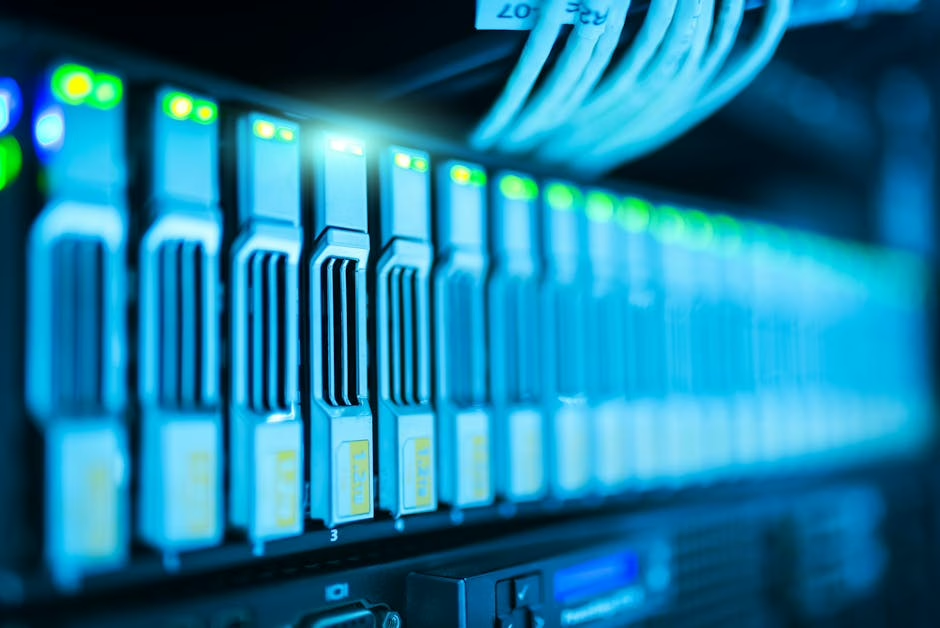The Writing is on the Wall for Spinning Rust: Enterprise Storage Evolution in the AI Era
The Shifting Landscape of Enterprise Storage
The enterprise storage market is undergoing a significant transformation as traditional hard disk drives (HDDs) – often referred to as “spinning rust” in industry parlance – face mounting pressure from solid-state alternatives. This shift comes at a critical juncture when data storage demands are exploding due to artificial intelligence workloads and increasingly complex enterprise applications.
China’s Ambitious Semiconductor Self-Sufficiency
One of the most significant developments affecting the storage industry is China’s aggressive push toward semiconductor self-sufficiency. As reported in recent industry analyses, China is attempting to develop its entire semiconductor supply chain domestically – a move that could dramatically impact the global storage market.
“This is insane, but also extremely risky,” notes one industry observer. The strategy leverages China’s massive population and economic scale, with specialized semiconductor enterprises distributed across 10-12 provinces representing approximately 40% of China’s population (571 million inhabitants).
While the U.S., EU, Japan, and Taiwan currently maintain a complete semiconductor supply chain collectively, China’s continental-scale economy potentially gives it the resources to compete independently. This development could reshape the production and pricing of storage components worldwide.
The AI Storage Challenge
As artificial intelligence applications proliferate, storage requirements are changing dramatically. Traditional HDDs, while cost-effective for certain workloads, increasingly struggle to meet the performance demands of AI systems.
The rapid advancement of AI models like Llama, Claude, and GPT has created unprecedented demands on storage infrastructure. For instance, newer AI models like QwQ can now outperform much larger commercial models while running on relatively modest hardware – a single NVIDIA 3090 GPU – but require storage systems capable of feeding data at extremely high speeds.
Enterprise storage vendors are responding with hybrid solutions that combine flash storage for performance-critical workloads with traditional HDDs for cost-effective capacity. IBM’s recent storage offerings exemplify this approach, with systems designed specifically for AI workloads that require both high throughput and massive capacity.
The Cost Equation is Changing
Historically, the primary advantage of HDDs has been cost-per-terabyte, but this advantage is steadily eroding. As one industry analyst notes, “The standards for ‘good’ really have skyrocketed,” referring to both performance expectations and cost-effectiveness.
Modern AI workloads highlight this changing equation. While premium AI services can be extraordinarily expensive to operate – with some estimates suggesting certain commercial models cost up to 428 times more than open-source alternatives – the storage infrastructure supporting these systems must balance performance and cost in new ways.
IBM and other major storage players are investing heavily in technologies that can bridge this gap, with solutions like the C200 series aimed at enterprises seeking to optimize their storage infrastructure for modern workloads without breaking the bank.
Sustainability Concerns
Beyond performance and cost considerations, sustainability has emerged as a critical factor in storage decisions. Power consumption, cooling requirements, and material usage all factor into the total environmental impact of enterprise storage.
Here again, the outlook for traditional spinning disks appears challenging. Solid-state storage typically consumes less power per unit of performance, generates less heat, and can offer longer service lifespans in many scenarios.
Storage vendors are increasingly highlighting sustainability metrics in their marketing materials, with solutions like IBM’s Storage Insights and similar offerings from competitors providing detailed analytics on power consumption and environmental impact.
The Hybrid Future
Despite the challenges, traditional HDDs aren’t disappearing overnight. The most likely near-term scenario is a continued evolution toward hybrid storage environments that leverage each technology’s strengths.
Enterprise storage architects are increasingly adopting tiered approaches, with flash storage handling performance-critical workloads and HDDs providing cost-effective capacity for less demanding applications. Solutions like IBM’s Storage Scout help organizations optimize this balance based on workload characteristics and budget constraints.
As one TechRadar analysis recently noted, “The writing may be on the wall for spinning rust, but the transition will be measured in years, not months.”
Conclusion
The enterprise storage landscape is evolving rapidly in response to changing workload demands, cost pressures, and sustainability concerns. While traditional HDDs face significant challenges, the most successful organizations will adopt strategic approaches to storage that leverage the strengths of multiple technologies.
As AI continues to transform enterprise computing, storage infrastructure will need to evolve accordingly. The vendors who can deliver the right balance of performance, capacity, cost, and sustainability will be well-positioned to lead this next phase of the storage evolution.
Sources
- China is basically trying to produce the entire semiconductor supply chain domestically – Reddit Singularity
- lol our standards for what counts as a “good” model really have skyrocketed… if it doesn’t crush frontier models 400x the cost it must suck right? – Reddit Singularity
- The next wave of Social Network, Billions of AI users deployed on the internet – Reddit Singularity


